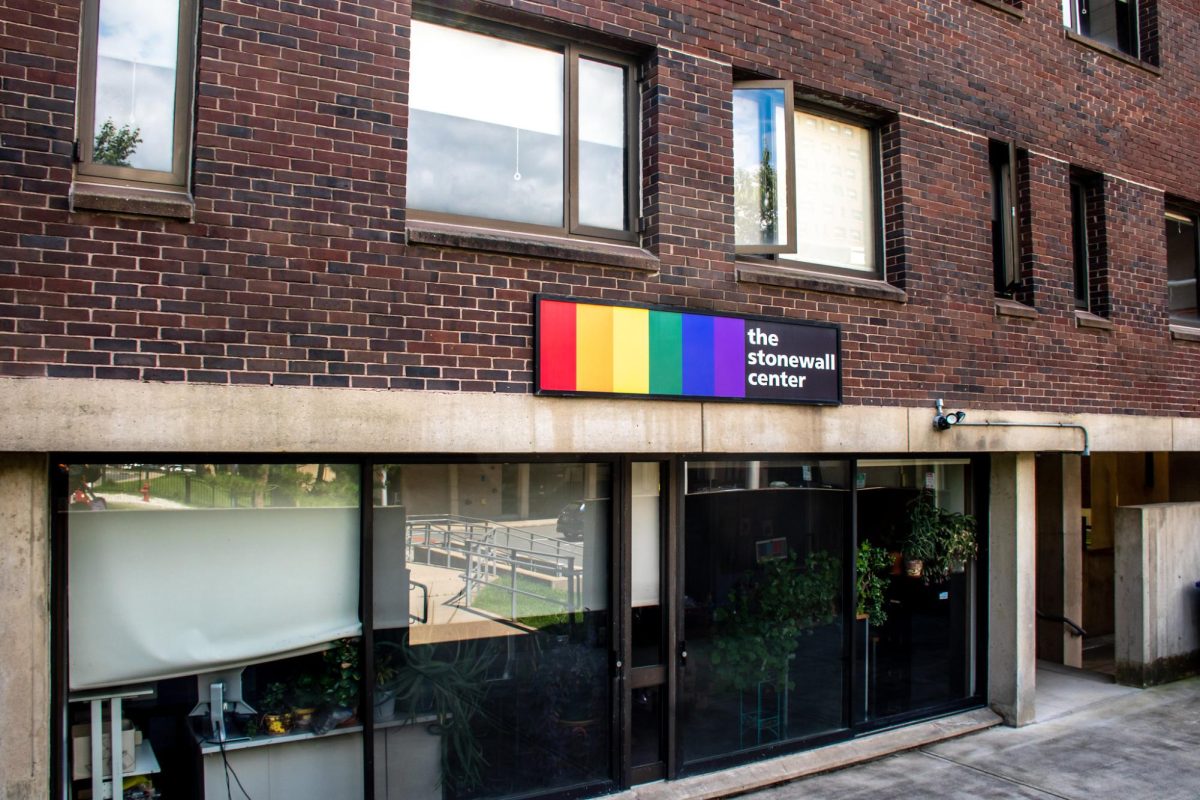On Thursday, Sept. 21, the University of Massachusetts Stonewall Center held its annual Name Change Workshop, in which they invited transgender and nonbinary students to walk through the legal process of changing their name.
Emily Daniell, a staff attorney at Student Legal Services Office (SLSO), provided a presentation taking the process step-by-step. Within the presentation, there was an explanation of all the legal documents and steps needed to complete the process.
The Student Legal Services Office is a campus law firm that provides free and confidential legal services to undergraduate and graduate students. Daniell explained that the changing of a name is something that can be accomplished, and if needed, SLSO is ready to provide the necessary resources.
“It’s important to provide this information to students to empower them … it’s a legal validator of who a student really is,” Daniell said.
Genny Beemyn, the director of the Stonewall Center, explained that because of the pushes from the Stonewall Center, UMass was one of the first colleges in the country to give transgender and nonbinary students the ability to go by whatever name and pronouns they choose in the administrative system, despite what their legal documents say.
Even though UMass has these resources, it is still important for students to have the option to change their name with guidance and support throughout the process.
“For many trans and nonbinary students, having the ability to be known on campus by the name that they go by is an important step in being affirmed in their gender identity. But it can still be traumatizing when they have to see their dead name on legal documents or in official communications,” Beemyn said, adding, “That is why some trans and nonbinary students look to change their names legally, and why we do this workshop annually to support them.”
The official name change is a court order, and one must complete various legal documents and pay fees to change their name. If their request goes through and their name is changed, the process for changing identification cards, passports, social security cards and birth certificates are all separate applications, also accompanied by fees. For legally changing a gender identity, a doctor’s note is required.
In many cases, a name will be changed if it is not determined as being changed for fraudulent purposes.
The extensive process can also be invasive, especially when gender changes call for doctor’s notes, and some try to find a healthcare center that is affirming to trans and nonbinary people. Sailor Cicchetti, a senior social thought and political economy and women’s, gender and sexuality studies major, explained that the list to their healthcare center has a waitlist of over 300 people.
“It feels like requiring a doctor’s note for anything is obscene,” Cicchetti said.
Cicchetti explained that although there are reasons for the way the process is laid out, it should be easier and more accessible for someone to change their name and gender identity.
“In general, I think it should be way easier to do it,” Cicchetti said. “I get that it’s a state thing and they don’t want people to abuse it, but really, what are the chances of people abusing it especially if they are using it for transition purposes. It should be very clear that it is somebody who is not doing it for fraudulent purposes.”
Eve Neumann can be reached at [email protected].








